Before customers want to buy from you they must first know, like and trust you. As the connection between city and bush erodes the challenge to address reduced levels of trust in agricultural practices increases.
In recent times, political policy has been influenced by green interest groups and farmers have been labeled as environmental vandals in order to justify deals.
Stories of farming practices are being told using distorted facts, highly emotive imagery and misleading information.
An audience can only make informed decisions with all the facts on the table.
So how do we find our voice again?
Actions speak louder than words
The message to get out and share the story about your farm and farming practices is a simple one.
But what does that look like in reality?
As small business owners our to-do list is already filled with paddock jobs, compliance requirements, officework, employee management, skills development and many other essential management tasks.
Many primary producers sell directly to wholesalers for fixed prices and levies are paid that go towards Industry driven marketing campaigns.
Animal activists are funded by large budgets. They have access to training and marketing resources that ensure emotive words and imagery connect with their target audience.
The end result…
The wrong people are telling the wrong stories.
Marketing 101
The concept is a simple one. Join social media, share what you do and why so that others can gain an insight and appreciation into modern day life on the land.
But life is not simple. Primary producers deal with death, difficult decisions and natural disasters. A story shared in good faith can be taken and twisted. A simple comment or query can spark an online altercation.
All too often interactions within the Agricultural Industry are divisive. Good manners go out the window and people forget about the choices they make.
Every online interaction involves a decision. In a split second you can be considered, kind and supportive or you can be cruel, arrogant and unhelpful.
The choice is yours. But the decision impacts the wider Agricultural Industry.
The power of story telling
Flashback to Christmas 2018. The 10 days during and afterwards were full of mixed emotions. The lead up was spent with family and friends. However, the planned downtime between Christmas and New Year was non-existent. Even New Year’s Eve celebrations had to be cancelled.
On Christmas eve my husband, son and neighbours worked until 2.30am helping National Parks staff backburn a fire that was caused by a lightning strike days earlier. By Boxing Day the fire had crossed the river and was burning in one of our three properties that border the Lonesome National Park.
We put a call out to our neighbours. Everyone we asked to help came without hesitation. Many had to leave Christmas visitors behind. They came fully prepared with portable fire fighting units and some bought heavy machinery such as graders and dozers.
Back at home, offers of support came in thick and fast. Groceries were collected, meals prepared and our children were looked after. We could not be more humbled by everyone’s generosity.
If you live in a rural community you will understand exactly what happened and why. Country values are at their best in times of adversity. Everyone knows their efforts will be repaid when needed.
To us it is not a good news story as such, but rather one of the many positives about living in rural Australia.
But here’s the thing…
People appreciate great stories.
I took videos and photos and shared them on Facebook as a way to recognise the efforts of our community.
It wasn’t much, but it shared the story of what was happening.
The response was amazing. Messages of support came flooding in.
The fire continued to burn for days.
At one point I shared my absolute frustration at how the system was letting down our volunteers and that poor external decisions resulted in 15,000acres of our land being burnt.
Again, the messages of support came flooding in. Strangers relayed their own stories and I could not keep up with all the comments posted.
So many people wanted us to know how much they appreciated Australian farmers. One post alone had a reach on facebook of 250,000 users. Many shared their own stories and disbelief of the situation.
The underlying message was positive. Setting the tone meant that others responded accordingly.
A new era of selling
Nearly everyone these days has a smart phone with an inbuilt camera. If you too, are sick of others telling untruths, you have the opportunity to share the real story of life on the land.
As farmers and graziers we need both the support of consumers and the backing of the wider community of urban voters.
Producing international standard food and fibre, using best practice management techniques that care for the environment and prioritise animal welfare is not enough.
A great product is nothing without great marketing
Consumers care about the end product and society cares about the actions of the individuals. So we must not only sell the produce and Industry but also the producer and other individuals who contribute to different levels of the supply chain.
Everyday we have experiences that remind us what we love about the lifestyle and the many challenges that are faced. These stories matter and people want to hear them.
Social media provides opportunities for Australian Agriculture
At a strategic level the importance of owning Agriculture’s story on social media cannot be understated. Right now many other interest groups are doing a much better job at projecting images of our Industry that are not representative of the wider Ag community.
Animal Rights groups shock viewers into action and Charities rely on compassion and sympathy to raise funds.
Australian Agriculture is a $60 billion industry providing world class food and fibre produced mainly by family farming enterprises who can proudly open their doors to the world. We don’t want sympathy but in order to feel empathy there must be an emotional connection.
Our story is simple, good people go to work and grow great produce everyday. This is achieved while ensuring the environment and animals are looked after.
Social media provides a cost effective opportunity to emotionally engage and influence consumers as well as the wider community.
Real people sharing real stories is one thing, but we must also take the opportunity to interact with each other as well as those people who may have a concern about agricultural practices. Primary producers wear many hats. Online the most important hat is the marketing one.
Australian farmers are resilient, adaptive and proud. Online marketing is simply another job that requires considered interactions.
Consumers don’t want to be lectured or educated by farmers. They want reassurance we are doing the right thing.
Actions speak louder than words. So carry your phone and share those moments of farm life with your family and friends. Encourage their questions and respond with your marketing hat on. Be supportive of others having a go to promote Agriculture. Remember your account may be personal but by commenting about your occupation you are representing the Industry.
“Each one of us can make a difference. Together we make change” (Barbara Mikulski)
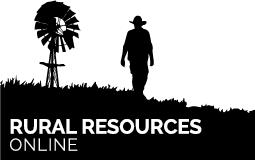

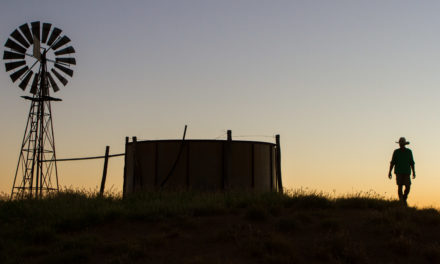
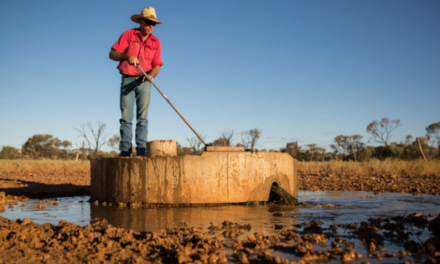
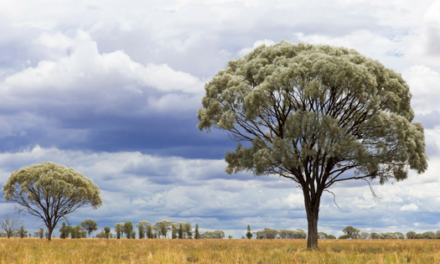
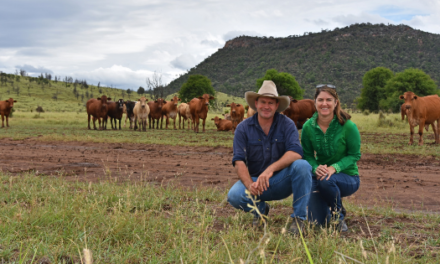
G’Day Bridget,
Social media appears good but in the end I have found that the likes of FB screws down your reach so much that it really isn’t worth the trouble and you end up preaching to the converted and not reaching your target audience.
I have found that say a short film clip will be viewed by a third of those it is shown to. So back in the day before my page had 10,000 followers, I would share to a couple of other larger pages and get a reach of about 30,000 x 40,000 – and a clip would get 10,000 – 15, 000 views. ( it varied of course). And I would pick up 100 or so new followers a week. Then my page reached 10,000 followers and I noticed a decline in reach and views back to about 5,000 – 7500. After I reached 12,000 followers things really took a dive. It was around the same time that FB rolled out it’s new algorithm. Now a post has a reach of 3,000 x 4,000 and views of 1,000 – 1,500. .and I’m lucky to pick up 1 or 2 followers a week. On my page alone I might get about 300 – 500 views on a clip.
I have looked around at similar pages and they all seem to have stalled at around 12,000 followers. Community pages go better but that’s a headache in administration that I don’t want.
The solution is to pay fees to reach even your own followers but they are quiet expensive for the reach FB promises.
Our detractors, of course, don’t have that problem. They have the money and resources to sponsor their agenda.
Last time a (forget which one it was – maybe PETA or Animals Australia) popped up on my feed it was sponsored and had a long list of complimentary comments attached. Many of the comments and replies by the page, seemed quite similar so I spent ten minutes checking the profiles only to find them all fake accounts – none seemed to be anyone’s personal account but created just for this purpose. The comments were so similar that it made me wonder if they were computer generated somehow..
How can we compete with that? Should AgForce have an office that collects and sponsors the pics and clips of the week? I think it would be worth it.
The really big pages like Station Photos 120,000 plus followers only reach a fraction of their followers and well – they are not the people we need to reach.
Cheers,
Catherine
Hi Catherine
So many valid points. Yes the algorithms do continually change and a strategic response is needed as we need to connect with a wider audience.
I am in the process of putting together and info sheet of positive social media Ag pages so we can start to get behind those people like yourself trying to share their story.
The discussion is important because it is another marketing avenue that, as you note, others are working the system much better than us.
Thanks for the comments.
Regards
Brigid